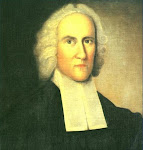This past Sunday I preached from Mark 5:1-20 on the stunning account of Jesus’ deliverance of a particular man from a horrific case of demon possession. While I did place the passage in its context in the Gospel of Mark, I did not have time to set the account in the larger context of the biblical storyline as a whole. Placing Mark 5:1-20 in its overall biblical context, albeit in a general way, is what I wish to do with today’s blog posting.
Mark 5:1-20 is in the Bible, among other reasons, to advance the theme of “Christus Victor,” a Latin phrase the church uses to describe God’s absolute triumph, in Jesus Christ, over the devil and his demons. Consider the following biblical “timeline” of this “Christus Victor” theme:
1. Genesis 1:27; 3:1- At some point between the time God finishes his original work of creation and pronounces it very good, and the time Satan appears in the Garden of Eden to tempt Adam and Eve to sin, the devil and his demons rebelled against God and fell forever from the glory of heaven. (See Isaiah 14:12-20, which appears to describe both the rebellion and fall of the earthy king of Babylon and the original rebellion and fall of Satan and his demons.)
2. Genesis 3:15- No sooner does mankind sin than his loving Creator promises to send one day an “offspring” of the woman who will destroy the power of the devil, though in the process the “offspring” himself will suffer wounds.
3. Matthew 4:1-11- Jesus comes as the “offspring” promised in Genesis 3:15, and he begins to defeat the power of Satan by resisting completely the devil’s best attempts to tempt him to sin.
4. Mark 5:1-20- Jesus continues to demonstrate his power over the devil and, in this case, over a “legion” of demons. This passage makes it clear that when Jesus speaks, his voice is the voice of God, and demons have no choice but to do exactly what God says when he commands them, because God is their Creator and ultimate Ruler. The devil and his demons are totally under God’s supreme authority.
5. Colossians 2:13-15- Jesus triumphed over the devil at the cross. The Lord won a decisive victory over the Adversary through his death for sinners, because through that sacrificial death, Jesus sets free forever all of his people from the power of the devil. What looked on the surface like God’s greatest defeat—the death of his Son—in reality was the hour of supreme triumph, not just over the devil but also over sin and death.
6. Revelation 20:7-10- Jesus dealt Satan and his demons a decisive defeat at the cross, in such a way that the devil’s final defeat is certain. At the end of the age, Jesus will fully and finally defeat Satan and his demons and throw them forever into the “lake of fire,” so that in the new heavens and new earth, Christians will be free forever from any attempts by Satan and his demons to harm them.
So what is the practical aspect of this “Christus Victor” theme to the lives of Christians today? As one Christian writer put it in a popular book several decades ago, we need to be aware that for now, Satan really is alive and well on planet earth. He cannot take away the salvation of Christians (John 10:28-30), but he still seeks to do Christians any harm he can (1 Peter 5:8), primarily by tempting us to sin and thereby ruining our witness to the world of the saving power of Jesus Christ. However, the “Christus Victor” theme reminds us that the Jesus who lives in Christians spiritually has infinitely greater power than the devil, and Satan is under a death sentence because of the cross of Christ (cf. 1 John 4:4). We have the power, by the grace of God, to defeat any schemes of the Adversary to do us harm. We can resist him, in the power of Jesus who has defeated him (1 Peter 5:9), and he will flee from us (James 4:7). Let us therefore pray that God will cause the power of Jesus to enable us to see and defeat any scheme of the devil to do us harm. And let us remember that this power of Jesus in us is the same power that already has triumphed over Satan in Jesus’ life and death. Thanks be to God for the power of his grace at work in his people!

I love Biblical Theology- thanks for tracing this theme out!
ReplyDelete